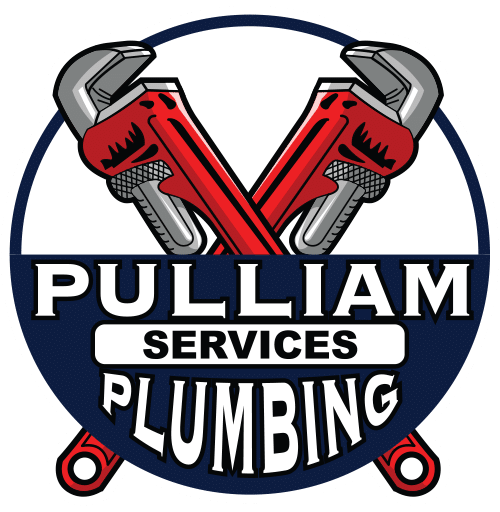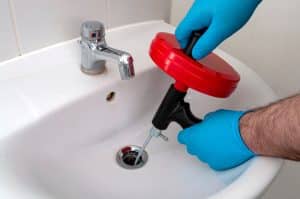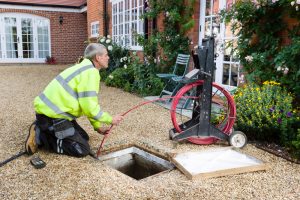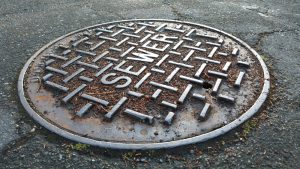Water is essential to our daily lives, serving various purposes, including cooking, cleaning, bathing, and ensuring the proper function of our plumbing systems and household appliances. However, homes in many regions experience hard water, which contains high levels of minerals like calcium and magnesium, which can lead to various issues, including reduced water flow, scale buildup, and shorter lifespans for plumbing systems and appliances. That’s where water softeners, a staple in our plumbing expertise, come into play as an essential solution for homeowners looking to tackle hard water challenges, improve their quality of life, and protect their home investments.
In this guide, we will explore the basics of water softeners and their benefits, helping you understand how these systems can significantly improve your home’s water quality. Water softeners effectively treat hard water by removing the excess minerals through processes such as ion exchange or salt-free processes that prevent scale buildup. By switching to softened water, you can notice an almost immediate positive impact on your daily life, including softer skin and hair, easier-to-clean surfaces, a longer-lasting appliance lifespan, and lower energy and maintenance costs.
Join us as we delve into the world of water softeners and equip you with the knowledge necessary to make an informed decision about upgrading your home’s water quality. Should you have any questions about water softeners or need assistance with choosing the best option for your specific needs, don’t hesitate to reach out to the expert team at Pulliam Plumbing for top-notch service and trusted advice.
The Basics of Hard Water: Know Thy Enemy
Before we dive into the world of water softeners, it’s essential to understand the primary characteristics of hard water and how it can adversely impact your home and daily life. Hard water contains high levels of dissolved minerals like calcium and magnesium, which, while not generally harmful to one’s health, can lead to various issues, such as:
– Dull, dry hair and skin due to the reduced effectiveness of soaps and shampoos
– Spots and streaks on dishes, glassware, and shower doors
– Scale buildup in pipes, fixtures, and appliances, leading to reduced water flow and eventual malfunctions
Knowing the warning signs of hard water can help you identify when a water softener might be necessary for maintaining your home’s water quality.
Types of Water Softeners Explained: Make an Informed Decision
When it comes to choosing a water softener, it’s crucial to understand the different options available and how they function. This knowledge will enable you to select a solution that best suits your specific needs and preferences. The main types of water softeners include:
- Salt-Based Ion Exchange: This popular system employs a process called ion exchange, wherein calcium and magnesium ions are replaced with sodium ions. The result is softened water that effectively prevents scale buildup and extends the life of plumbing and appliances. Salt-based systems require routine maintenance to replenish salt levels and flush out the minerals removed from the water.
- Salt-Free Water Conditioning: For those who prefer a salt-free option, these systems utilize a variety of processes, such as crystallization, to alter the structure of calcium and magnesium, effectively hindering their ability to form scale. Salt-free water conditioners do not require salt replenishment, making them lower-maintenance options; however, they may be less effective in treating extremely hard water.
- Dual-Tank Water Softeners: Designed for households with high hot water demands, dual-tank systems provide continuous softened water by utilizing alternating tanks during the regeneration process. Although they often have a higher upfront cost, dual-tank water softeners offer the benefits of fewer disruptions and longer-lasting performance.
Unveiling the Benefits of Water Softeners
Installing a water softener offers several advantages that can improve your overall quality of life while also protecting your home’s plumbing and appliances. Some key benefits of water softeners include:
- Improved Water Quality: Softened water tastes better, reduces skin and hair dryness, allows for easier and more effective cleaning, and extends the life of plumbing and appliances by preventing scale buildup.
- Reduced Scale Buildup: Water softeners help minimize scale deposits in pipes, fixtures, and appliances, resulting in improved water flow, reduced energy usage, and lower maintenance costs.
- Extended Lifespan for Plumbing and Appliances: By treating hard water, water softeners can significantly prolong the life of plumbing systems, water heaters, washing machines, dishwashers, and various other appliances.
- Enhanced Energy Efficiency: With reduced scale buildup, household appliances can function more efficiently, potentially resulting in lower energy bills and a greener lifestyle.
Tips on Choosing the Right Water Softener
When evaluating your options for installing a water softener, consider the following factors to ensure you select the best solution for your specific needs:
- Water Hardness Level: Conduct a water hardness test to determine the severity of the problem and gauge the most effective type of water softener for your situation.
- Household Water Use: Assess your family’s water consumption patterns to select a system with a sufficient capacity and regeneration method suited to your home’s demands.
- Budget: Keep in mind the upfront costs of different systems, as well as ongoing maintenance expenses and potential long-term savings from reduced energy usage and extended appliance lifespans.
- Space Constraints: Determine the available space in your utility area or installation location and consider the dimensions of various water softener systems to identify a suitable fit.
Conclusion
Water softeners can improve your home’s water quality and protect your plumbing systems and appliances from the damaging effects of hard water. By understanding the different types of water softeners, their benefits, and the factors to consider when choosing a system, you can make an informed decision that caters to your specific needs. For expert guidance and 24-hour plumbing services, rely on the skilled team at Pulliam Plumbing. Let us help you enjoy the incredible advantages of high-quality, softened water in your home today.




